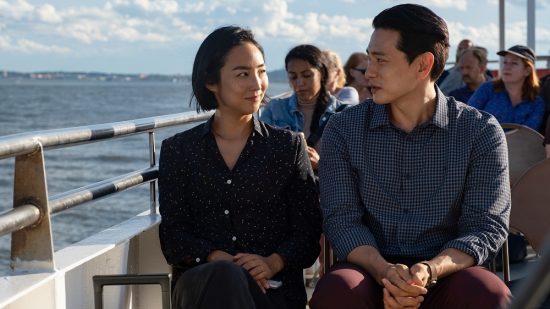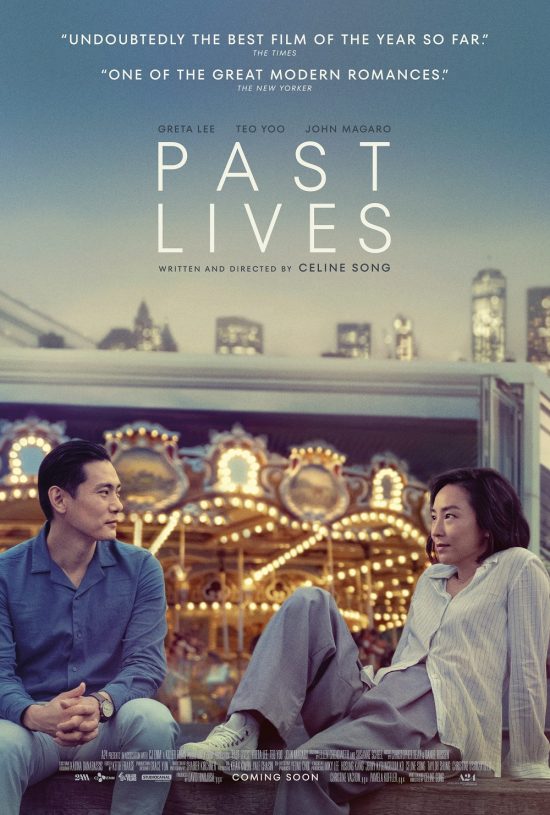Past Lives: A Purposeful Meditation on What Might Have Been
Detachment is a difficult filmmaking tool to wield. It can come in the form of tension, like in Hitchcock and Kubrick’s works, that feeling of being a step removed from events unfolding. It can also be a more personal story of romantic detachment, a longing that can’t be quelled, frequently used in English period dramas and East Asian romances. Perhaps the greatest modern application of longing is in Wong Kar Wai’s ”love” duology. These films made withholding so sexy. That gap between watcher and watched is filled with voyeurism, sultry visuals and unpronounced needs: unrequited love as torture.
Past Lives is a film made with a profound romantic detachment, even though it’s based on the writer-director’s own personal story. It’s a film where very little happens, and almost everything felt is left unsaid, as characters can’t quite take that first step on the road less travelled.
Celine Song‘s debut feature (as shown at Sundance London) has three distinct acts. In the first, 11-year-old Nora (Greta Lee) leaves close friend Hae Sung (Teo Yoo) back in Seoul, as her family moves to North America. In the second act, 11 years later, Nora, now at college in NYC, finds Hae Sung on Facebook. He’s now at engineering school in Japan. They develop an intense almost parasocial relationship due to their different locations and goals. Eventually, Nora cannot bear the distance and severs contact, leading to melancholy on both sides. In another 11 years (Act 3) Nora has married writer Artur (John Magaro) when Hae Sung contacts Nora to say that he’s finally coming to NYC. Their unconsummated, confused feelings can finally be explored in person, 22 years after they last saw one another. All three characters realise the importance of this meeting, because of the layers of in-yeon between Nora and Hae Sung (the Korean idea that people have met many times in past lives and each time they meet it creates a new layer binding them together).
Past Lives is a precisely put together story utilising detachment in all its forms. Enjoyment of the story will directly correlate with how emotionally invested viewers become in Nora and Hae Sung’s relationship, which is as interior as that in Brief Encounter. The audience is required to do a lot of heavy lifting, sifting through basic, childlike dialogue between characters and analysing every wistful glance. In fact, Past Lives most comes alive in the moments not shared between Nora and Hae Sung, like when Hae Sung banters with his friends, or in the film’s clever opening scene. The film is, for want of a better word, a little too millennial. The two leads each have a wonderful life but remain fixated on what might have been, while both being unwilling to make even the smallest sacrifice to explore the outcomes. Arthur is easily the most sympathetic character, tolerating Nora’s emotional cheating which is mostly based on the idea of Hae Sung. And the film’s end doesn’t provide the necessary emotional release to all that pent up tension.
However, the real surprise of Past Lives is its magnificent cinematic choices. The shot construction combined with slow pans across New York and Seoul skylines are Kubrickian motifs that Song has mastered. She cleverly keeps Arthur half out of shot, makes match cuts and treats each frame as a work of art. As a film, Past Lives is diverting but unfulfilling. But as a calling card, Past Lives is perfect. With someone else scripting the narrative, Song could become the new master of detachment.











